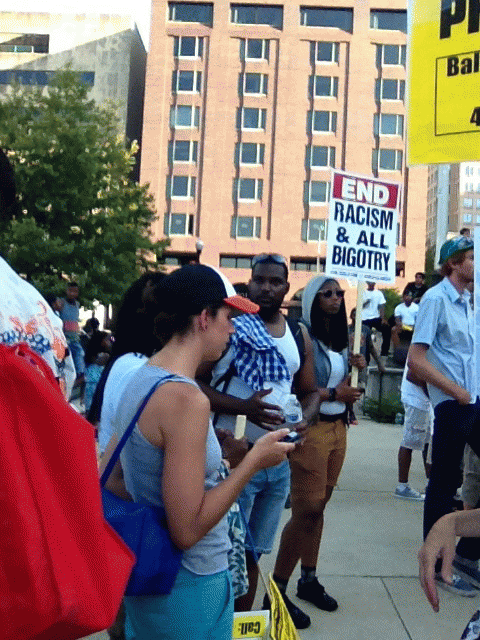In the context of the Ferguson uprising, the term "race war" has been referred to in multiple contexts. Let's talk about race war. A race war was embarked upon by Europeans, and later European Americans, in 1502 when they decided to breach Africa and kidnap people to bring to the Americas as slaves. The transatlantic slave trade of Africans and the chattel slavery system -- the raids, imprisonment, forced labor, cultural genocide, brutality and sadism -- comprise the very definition of a "race war."
The race war continued in this form until the Civil War. There was a miniature pause in the race war during the post-Civil War Reconstruction period, when African-Americans were granted some enfranchisement in the States -- voting and gaining political representation locally and nationally.
The race war resumed forcefully in the 1870s under the Southern Jim Crow system and the institutionalized racism of the North. This period of race war in the US was characterized by African-American political disenfranchisement, apartheid (politely referred to as "segregation") and homegrown terrorism in the form of lynchings and the violent actions of the vicious KKK. The race war then nominally ended -- 467 years in -- with the passage of the Civil Rights Act of 1965.
Unfortunately, in reality, the race war did not end at this time. Four hundred and fifty plus years of oppression, cultural devastation and injustice do not disappear with the swipe of a pen. Societies and cultures are far too complex for that.
The United States did not resolve to pursue a course of rigorous enfranchisement, truth and reconciliation and reparations for the centuries of crimes. Instead, the race war took on a different guise: in the wake of the 60s freedom movements, all youth of color were now to be treated as potential criminals to be monitored and harassed. The race war continued. Pentagon coffers were so overstuffed that they now had more military hardware than they could use. They passed it on to local police departments, who were trained accordingly. The country's approach to drug addiction was to launch a drug war. Youth of color were to be thought of as suspects in this drug war first and humans or citizens second. Prisons became a growth industry for ailing local economies and needed to be filled. Youth of color were targeted for this. The race war continued.
This is race war. This is what we Americans of European heritage have engaged in historically. It is time we end it. No more dithering. No more ridiculous crying about it. Face our history and enact the social and cultural changes that must be realized.





